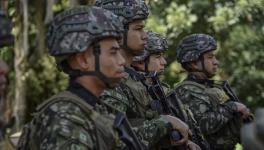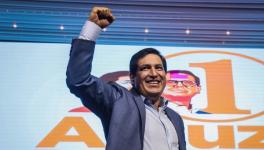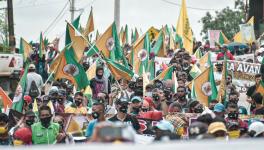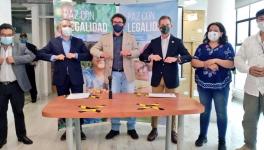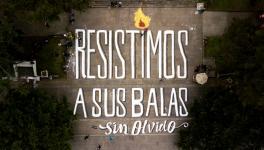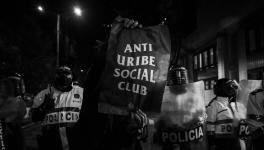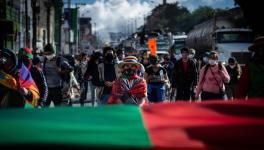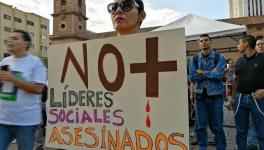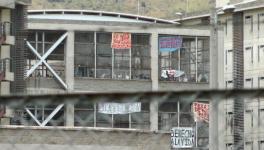“The ELN has Supported and Will Continue to Support Peace"
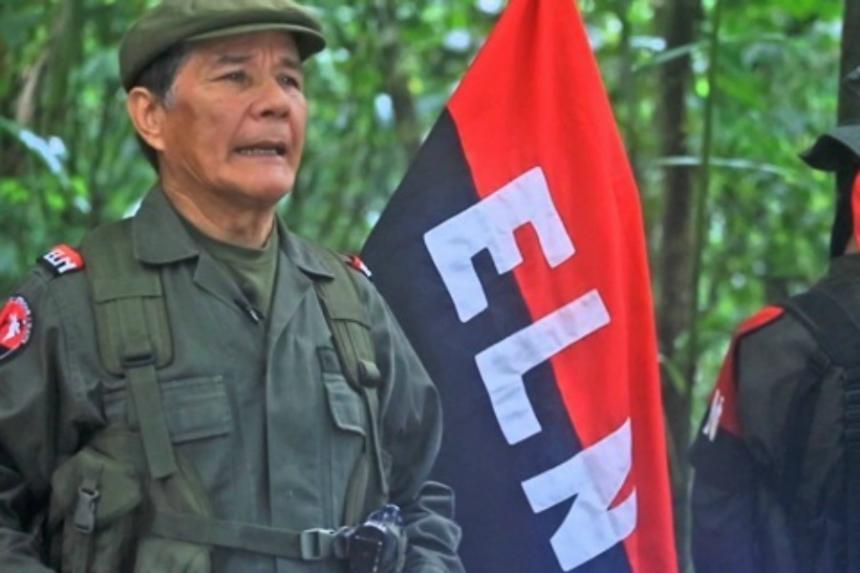
On August 7, Iván Duque, of Democratic Center Party, will take over as Colombian President, which implies the return of Uribismo [the administration and policies of former Colombian President Álvaro Uribe, who is infamous for a series of corruption and human rights abuse scandals during his presidency]. Juan Manuel Santos, the current Colombian President, will leave with a peace agreement signed with the FARC-EP [Revolutionary Armed Forces of Colombia—People’s Army] and a process of dialogue with the ELN [National Liberation Army]. In response to these questions sent by GARA [a news agency], Nicolás Rodríguez Bautista Gabino, the first ELN commander, reaches out to the new government but warns that they will not accept “dialogue under conditions that violate the existence of two parties that must sit and speak without conditions”.
How do you assess the return of Uribismo to power with more than 10 million votes even as a candidate like Gustavo Petro managed to win eight million votes?
It is no wonder that the extreme right has won the election. Camilo Torres, the priest and guerrilla fighter, said more than 50 years ago that in Colombia, the one that counts the votes decides who is president; the clientelist system with its corrupt machinery is imposed. The real surprise was given by Petro, who without machinery or money, won more than eight million votes, which constitutes a phenomenon not seen for more than 40 years, when they stole the elections from the ANAPO [National Popular Alliance].
To what extent will Duque have or want to have room to maneuver with regards to Uribe?
Uribe is the significant figure of a Colombian extreme right wing that created paramilitarism in the 1960s and then with the American anti-drug agency, opened the way to trafficking because it needed money to sustain those private armies that do the dirty work of massacres, murders and disappearances so as to avoid putting these costs on the armed forces. Uribe, over and above Duque, is that sinister figure defending the war as a way out of rebellion and people’s discontent. As long as Uribe is a politician, he is the key figure, the others are just his followers.
In view of the presidential campaign and election results, is Colombia living a political spring?
This spring can create a great people’s and social movement that can overcome sectarianism and particular individualisms; to build this movement, the people of Colombia must put in effort. The presidential elections left an initial blueprint to follow to strengthen this mass movement and there is no time to lose.
Will it be possible to get to Duque’s swearing in ceremony with a bilateral ceasefire agreement?
Even with all the difficulties, the ELN has supported and will continue to support peace. Santos’ government, which is about to end, continues to meet with the ELN to establish the agenda agreed upon in the peace process. We will have the same disposition for dialogue with the next government.
Is the ELN willing to suspend all activities and concentrate under international supervision, as Duque has demanded?
No. The ELN has reiterated to the new president that it does not agree to dialogue under conditions that violate the existence of two parties who must sit down and speak without conditions.
The ELN has stated that the election results ‘oblige’ all parties to continue with the peace process. What is the ELN willing to do?
In these years of dialogue with the Santos government, an agenda, a roadmap for achieving peace, was agreed on; the ELN brings all of that prior work to the Duque government who must have the disposition to continue. The process is there and now; one cannot fall into improvisations. Of course, we do not rule out that specific issues can be adjusted, but for this reason, it is necessary to continue the dialogue with the incoming government and our delegation is prepared for it.
If the dialogue continues, it will be with the hardest and most reluctant part of the establishment. Experts say that this could be a greater guarantee to achieve a solid agreement and for its implementation. How do you deal with this new phase in the process? Will it be easier to negotiate with those who have publicly opposed the FARC-EP process?
This dialogue is between enemies that we have faced for more than half a century without there being any winners or losers. That is the reality that has us at the roundtable for dialogue. The goal is peace for Colombia and we proceeded towards it with fortitude with Santos’ government and we will do the same with Duque’s government. It is better to do it in practice and then draw the conclusions.
The process with the FARC, the breach of agreements, the actions of the Attorney General… show, in words of the head of the ELN delegation, Pablo Beltrán, a “state of fragmentation”. What are the key points to build this “coherent, reliable and sustainable” institutionalism demanded by the ELN? Will this new Uribismo have the ability to do so?
Any lie, breach or violation of the commitments that have been agreed upon implies a rejection of peace, generate uncertainty and increase mistrust. What happened with the FARC-EP is the manifestation of the existence of a fragmented and incoherent state, with its back to the majorities, which, in addition, murders its representatives when they demand justice and question the misgovernment. That is why the assassinations of social and peoples’ leaders happens, and the FARC has been clear in its concern about the violations of the agreements. This is how the Colombian oligarchy is. Only a state that is an expression of the majority will be able to overcome the crisis that exists in Colombia. Hence, a peace process must have this objective. Uribismo, with Duque as president, is “more of the same”.
In a recent forum organized in San Sebastian, Basque Country, Colombian scholars presented as an example that “it is possible to collaborate with the enemies without being a traitor” referring to the recent meetings held in Cali and Medellin between former combatants of the FARC, paramilitaries and the ELN peace advisers. Does the ELN share the same vision? To what extent can this help in breaking the disconnect between the rural and urban worlds and in changing the perspective of a great majority of Colombians that believe “they are giving the country away to terrorists”?
[Our vision of] peace for Colombia proposes profound structural changes because the existing state of affairs was responsible for producing the armed uprising, peoples’ rebellion and permanent struggles. Implementing these changes is essential; everything else is just like using lukewarm water on a wound that represents cancer. This is the magnitude of the reality and these changes will be generated by the active participation of the whole society, especially the excluded, the marginalized and those who have suffered from violence, those who lead Colombia to a good harbor. Any effort that doesn’t go in this direction and with these dimensions is insignificant for the people and is beneficial for its enemies. It is a challenge for the people and its fighters. Any effort for peace must be valued but we cannot misdirect the emphasis on the most essential.
Get the latest reports & analysis with people's perspective on Protests, movements & deep analytical videos, discussions of the current affairs in your Telegram app. Subscribe to NewsClick's Telegram channel & get Real-Time updates on stories, as they get published on our website.









